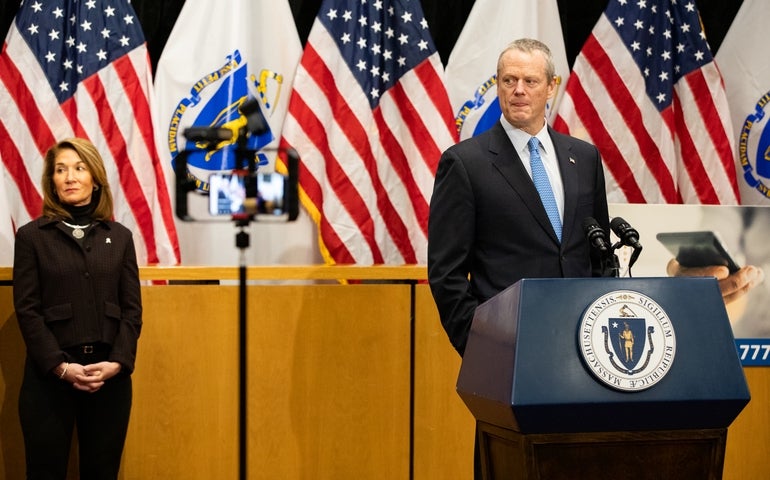Most public life in Massachusetts will remain shut down until at least May 18, Gov. Charlie Baker announced Tuesday, adding at least another two weeks to business closures and a ban on large gatherings as the administration launches an effort to create a roadmap for a phased reopening amid the coronavirus pandemic.
Baker extended executive orders requiring non-essential businesses keep their physical businesses closed to workers, customers and the public and banning events with more than 10 people, as well as an advisory that residents stay at home for public health safety whenever possible. Without action, the orders were set to expire on May 4.
Lt. Gov. Karyn Polito, Housing and Economic Development Secretary Mike Kennealy, municipal officials, business leaders and public health experts will form an advisory board and draft “new rules of the road” for how the state can take steps toward reviving economic activities in the coming weeks.
The board will submit recommendations by the May 18 date that the extensions expire, Baker said.
Baker told reporters he recognizes the shutdowns — which also include physical closure of schools through the end of the academic year and non-emergency child care closures until June 29 — carry a significant economic impact, but described them as necessary steps to save lives during the COVID-19 pandemic.
“I know pushing these dates back a couple of weeks is probably not what everybody wants to hear,” he said. “We all look forward to stepping in front of this podium to tell you we’re starting to open for business. I know we’ll get there soon, but we have to be smart about how we do it and recognize and understand there are risks associated with opening too soon.”

